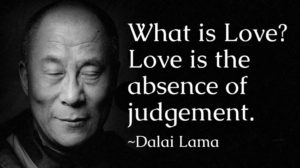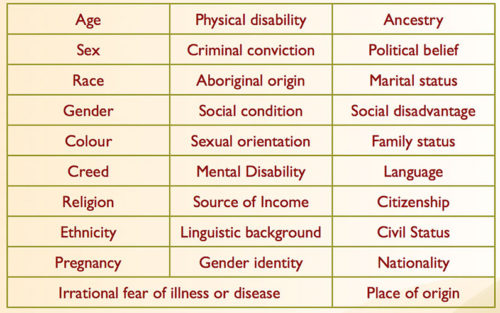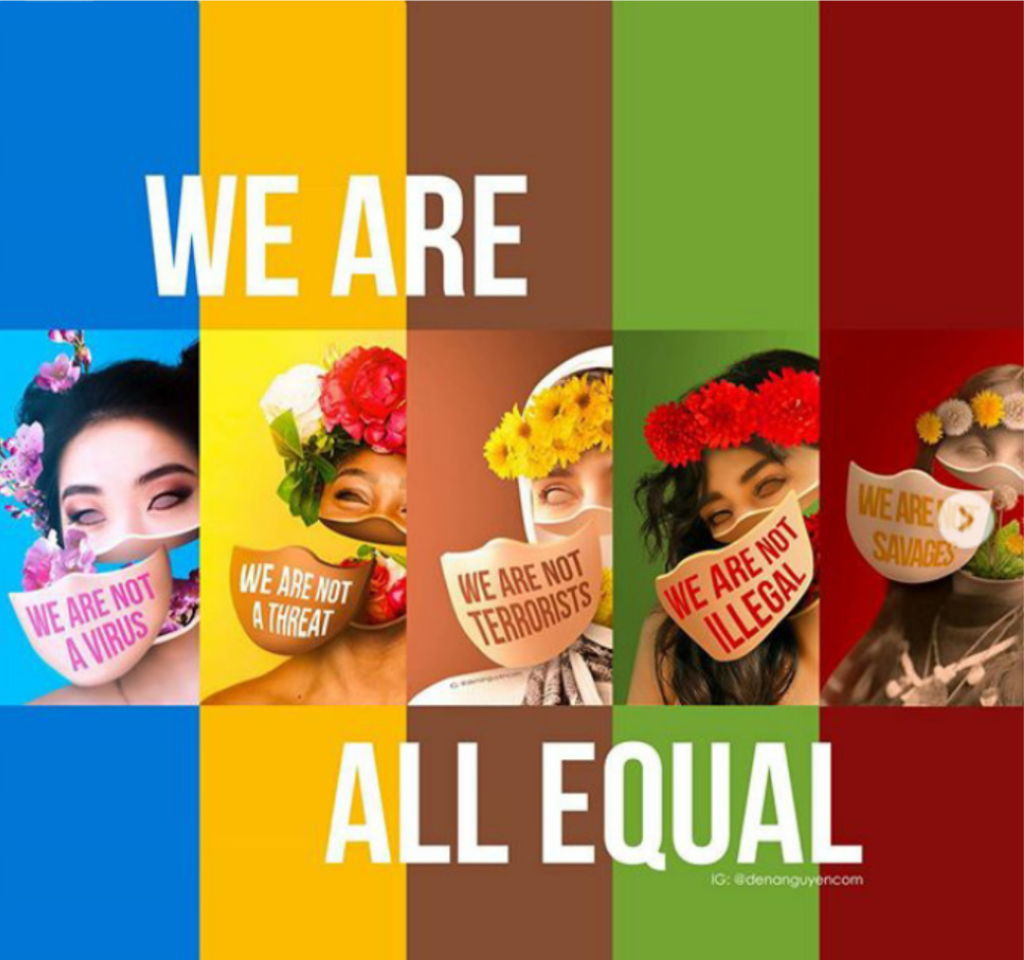
Prejudices form the breeding ground for all kinds of discrimination. It has a strong influence on how people behave and interact with each other. We can become more conscious of our own prejudices by knowing the seven types of prejudice, and taking steps to overcome them. (Estimated reading time: 8 minutes)
“No one is born hating another person because of the color of his skin, or his background, or his religion. People must learn to hate, and if they can learn to hate, they can be taught to love, for love comes more naturally to the human heart than its opposite.”
— Nelson Mandela
Prejudice is defined as an unjustified or incorrect belief system or attitude (usually negative) that one has towards an individual based exclusively on his/her affiliation with a social group.
In fact, the word “prejudice” has its roots in the Latin words “prae” (in advance) and “judicum” (judgment), which literally translates to “judge before”.
When our opinions are based solely on the generalizations we’ve made about members of a certain group of people without any form of real-life interaction with them, we’re essentially “pre-judging” them. We assume that we know everything about them without getting to know them in person.
Prejudices form the breeding ground for all kinds of discrimination that play out in real life. It fuels ignorance, xenophobia and insensitivity towards the groups and communities that we’re prejudiced against. Throughout history, prejudice has spawned some of humankind’s worst atrocities against one another – war, genocide, torture, starvation, murder, human rights violation and despotism.
For example, the Nazi’s extreme prejudice against the Jewish people in World War II influenced them to force the Jews to wear the Star of David. This widespread persecution escalated to the point where the Nazi’s began engaging in mass “ethnic cleansing”, which involved the imprisonment of their victims in concentration camps and the merciless execution of thousands of them in gas chambers.

Other examples of ethnic discrimination include the apartheid movement in South Africa that enforced blatant racial segregation between the blacks and whites. Slavery that has been practiced since the ancient times of Babylon, Egypt, Greece and Rome was born from the ruling class’s inhumane disregard for innocent and powerless minorities in their kingdom, who they exploited to build their society.
Not all types of prejudice are related to ethnicity, race and religion. Gender prejudice is still prevalent in Western societies where women are often disfavored in the workplace and, on average, are paid lesser than their male counterparts for doing the same job. In some male-dominated societies, women are subjugated to inequalities that deprive them of education and job opportunities, safety and basic rights.
Prejudice can be about any group of people. We may have something against people who support a particular political party (Democrats) or those who follow a certain diet (vegans) or live in a certain part of your town (The Suburbanites) or who accessorize a certain way (piercings and tattoos).
Broadly speaking, there are 7 types of prejudice that are based on dominant factors such as religion, race, gender, age, socioeconomic status, nationality and sexual orientation:
- Racism
- Sexism
- Ageism
- Religious Prejudice
- Classicism
- Homophobia
- Nationalism

It’s important to know that we aren’t born with any preconceived notions about anyone in the world – all our prejudices are something that we’ve learned over time. The human mind likes to simplify things, including the behavior of the people around us, especially when we lack sufficient data.
When we have inadequate information about a certain person individually, we’re inclined to form an opinion about them based on our schemas and the experiences we’ve had with the group that they belong to. It’s our mind’s way of taking shortcuts to be more efficient with our brain’s energy.
We’re instinctually driven to form preconceived notions about others, no matter how skewed or irrational our thoughts may appear to us. An “us versus them” mentality is a survival mechanism to guard ourselves against danger and we learn who to guard ourselves against, based on what we’re taught as kids, our cultural experiences (or lack thereof), and what we’ve seen in the media.
All the evaluations that we make about others happens on a deep subconscious level and the only way to avoid being run by our old programming is to become aware of when it happens. We also have to recognize that our prejudice has everything to do with us and not with the other person or group. It clearly exposes the nature of our shadow and all the neglected parts of us that need to come to light.
When we look closer, we’ll see that our biases are simply a by-product of fear and ego-based thoughts, and the solution is to gain knowledge that counteracts these thoughts so that we can move towards a perspective based on love, openness and compassion for our fellow beings. If we want a positive change in the world, we have to start with ourselves by observing how and why we block certain people out.

Even though we now have extensive laws that protect the rights of people, we still have a long way to go. There’s a strong undercurrent of intolerance that linger in the consciousness of many people, which needs to be addressed. Here are a few solutions for overcoming any types of prejudice:
1. Become aware of your prejudices: The first step to combat your own biases is to find out what they are. There are tests that you can take to assess your beliefs about various individuals and measure the level of inherent bias you have towards certain groups, such as the Implicit Association Tests (IAT). In addition to doing the test, you should take a closer look at the interactions that you have in your everyday life and observe your patterns. Once you’re clear on the kind of prejudices you have, you can proceed to finding out what is causing you to feel this way. Was it something that you were taught by the people around you? Did you have a bad past experience with an individual belonging to a certain group? When and how did these prejudices take root and what is happening to reinforce these beliefs in your life?
Once you’ve understood the origins of your types of prejudice and unfair judgments about others, you’ve won half the battle against prejudice. Remember that as you go through this process, do not beat yourself up and engage in self-blame for having unpleasant thoughts about others. Treat yourself with compassion and applaud yourself for each step that you take towards creating a positive shift in your behavior so that you can become a better person.
2. Stay mindful and be accountable: Once you acknowledge your own types of prejudice, you’ll find easier to be mindful of any irrational beliefs and self-talk that causes you to feel biased. In other words, you start becoming conscious of what is normally an unconscious mental process. You’ll be able to connect with deeper values that stem from your higher mind and avoid acting on instinctual assumptions and fears. Being aware of your prejudices will make it easier for you to step back and choose differently, and behave in line with your higher ideals. During this typically uncomfortable transition phase, you’ll have to hold yourself accountable by managing your thoughts and challenging your current beliefs around your prejudices. For example, if you’ve believed all your life that all old people are boring and grumpy, remind yourself that you’ve made an over-generalization every time you meet an elderly person.
3. Eliminate or spend less time with prejudiced people and media: We are heavily influenced by the people that we spend the most time with and we tend to inherit their beliefs as well. So if you’ve been hanging out with ignorant folks whose values are centered on hate and fear, you might want to distance yourself and spend less time with them. The media is also a big culprit for fueling feelings of prejudice and discrimination, so you need to have your antennae up whenever you come across one-sided media personalities and celebrities spewing fearful rhetoric, and be willing to toss out that newspaper or magazine and switch off that TV or radio whenever you sense it. In this way, you’ll shield yourself against partisan sources of information that could influence your opinion of others in a negative way.
4. Broaden your horizons: Bigoted beliefs about others are usually formed due to incomplete or skewed knowledge that you’ve taken in and so the most effective way to combat it is by inundating yourself with contradictory information that can balance out your current perspective. You can start out by befriending members of the group that you’re prejudiced against. Keep an open mind and heart as you speak with them and really try to see what the world looks through their eyes. Connect with them deep enough so that you get a sense of the challenges that they face and you can embrace their humanity. You could also broaden your outlook on the wonderful diversity that exists in our world by traveling, reading books, visiting museums, taking language or cultural courses, and engaging in the arts. These heart-opening experiences will reveal hidden worlds that will make you more accepting of differences.
5. Become a spokesperson for them: The groups that are targets of prejudice usually experience a lot of hardships because they’re misunderstood by a significant segment of the population. If you feel strongly about certain groups, you can take the initiative to support them by lending your voice and energy towards eradicating any injustices that they may be facing. For example, actor Richard Gere was deeply touched during his visit to the tiny kingdom of Tibet, and not only did he convert to their religion of Buddhism, but he also became a strong advocate for the Tibetan people’s fight for freedom and for their safety in the face of the repression imposed upon them. Former US first lady, Eleanor Roosevelt, was a passionate supporter of the civil rights of African Americans from the 1930s until her last days. She was zealous about promoting equal rights for them and moved their cause ahead by decades.
During this crucial time when our planet faces imminent threat due to our negligence to take care of it and maintain world peace, it’s imperative for us to raise our collective consciousness and eradicate the barriers that prevent us from uniting and coming up with solutions for crucial global issues.
I believe that we’ll only be able to come together once we realize that, ultimately, we all want the same things in life – happiness, joy, connection, peace, prosperity, and most importantly, a sense that we’re understood and that we matter.
All my best on your journey,
Seline

Question for you: What types of prejudice do you identify with? What are some of the steps that you’re willing to take to overcome them?
Did you like this post? Sign up below and I’ll send you more awesome posts like this one every week.

What a beautiful ending to the new year. Thank you so much for this very timely post Seline.
You’re welcome Nadia! Wish you a happy and prosperous 2017!
Great thinking! I had no idea that there were 7 types of prejudices. This post was an insightful read.
I agree- if there is one message the world needs to hear and take to heart this year it is this one! It is my prayer again that 2017 will be the year we wake up and put all the hate and prejudice and stereotypes behind us!
I agree- i just hope that enough people will feel the same way and take that conscious step to try and make a change and do things differently. It only takes a spark to start a fire but the more sparks there are the better chance there is for it to catch and take off!
Very true Didi. That’s why I write posts like this – to make people aware of these issues and perhaps contribute towards making a change.
Prejudice ruins the world!
Thanks for bringing this to our attention Siline.
I agree Seline. But we still have more work to do to end prejudice based on current events.